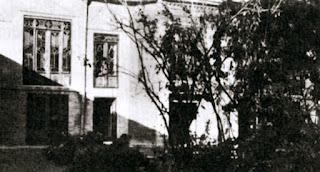In 1844, when Bahá'u'lláh had almost reached the age of 27, a
new Messenger of God (Manifestation of God) by the name of the Báb (the Gate) declared
His Mission to humanity in Shiraz, Persia. The Báb announced that He was the Gate
and Forerunner to an even greater revelation, Whose advent was close at hand,
by Whose will He moved, and in Whose path He longed to sacrifice His life. He
also announced that He was the Qa'im - the Messenger of God promised in the Qur’an
Who would usher in a new age of righteousness. In the late summer of that year
Bahá'u'lláh received the news of the Báb’s Declaration through Mulla Husayn - the
Báb’s very first disciple.
(Adapted from ‘Call to Remembrance’, by Geoffry
Marks)



